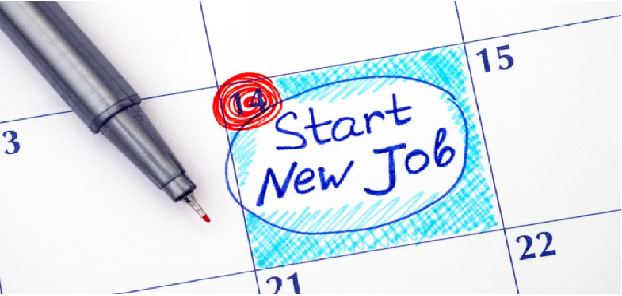Every conversation I’ve had in the last two weeks has had some mention of the impacts of COVID-19 — if only to comment on the lunacy of panic buying toilet paper and the brilliant response from the NT News.
As you might expect there have also been discussions about the impact on businesses and what may happen to those businesses whose staff don’t currently practice working from home. This has led me to think about what my top five tips are for individuals working from home. They include considerations about your working space, how to best manage your virtual meetings, managing your boss, concerns about technology and finally procrastination.

Try to make your working space at home like your desk at work
Consider natural light, everything you need in the one place, headset, multiple screens, keyboard, mouse etc. Ask your IT department if you can borrow some equipment (remember to clean them before you take them home), otherwise a trip to your local Officeworks or Target to get some office related goodies* can make the whole exercise slightly more fun.
When working from home there can be a tendency to work all day without breaks. I encourage you to deliberately include breaks into your calendar so that you don’t spend all day inside. Walking to your nearest local café for your caffeine fix can be a good way to get out of the house and get some sunshine.
*Please don’t take my word for it but I think you can tax deduct these items.
Treat virtual meetings like office meetings
You will likely find that you spend far more time in virtual meetings than you would if you were in the office. Depending on how you work it might be worth scheduling calls with people rather than just ad hoc calls. This means that you and your colleagues and clients can structure their work around the calls and be more productive.
I have found that meeting etiquette for virtual meetings becomes even more important when you can’t see your fellow colleagues. Not being able to see your colleagues means that you (and them) can get away with muting the call and surreptitiously checking emails/Instagram/sending instant messages to another person on the call about the call etc. It is for this reason that I think it’s important that you actively pay attention and are present on phone calls. One way to make sure this happens is for the meeting chair to provide a very simple agenda (think: name of person, topic, 5 mins) ahead of time and make sure that everyone has an agenda item to talk to.
Consider the number of people on a call as if you were in a physical meeting room. There is a tendency to invite all and sundry to a virtual meeting because you can – generally there’s no limit on the number of attendees where usually there is a limit on the number of chairs.
I can recount numerous situations where the meeting chair has asked “does everyone agree?” (or similar). What generally happens is silence, or everyone speaks over each other. My suggestion to meeting participants (despite it being counter intuitive) is that silence equals acceptance and questions are asked that will elicit only a few responses – for example, “Who disagrees?” rather than “Does everyone agree?”.
Other considerations about virtual meetings include dressing appropriately for the call and making sure you have set up your video conference camera correctly. You look a fool if everyone can see your dental work and if you are wearing your pyjamas you reinforce the stereotype bout working from home.
Managing your boss
There is a stigma associated with working from home which includes assumptions about lounging about on the sofa and doing very little work. I anticipate that this stigma will diminish as the number of people working from home increases and it becomes normalised.
Until that day, I think part of the stigma can be dealt with by addressing it head on. If there is an assumption by your boss that working from home includes sitting on the sofa doing nothing, then I would encourage you to plan your work, share your plan with your boss and then deliver those work products.
One way of managing this (particularly if you have a boss who is new to working remotely) is to organise a morning call to discuss progress against the deliverables and ensure that your boss is comfortable about progress against goals. For the working from home arrangement to work there is also an onus on the manager to trust their staff that they will deliver the work required and provide clear direction and expectations about what is required. Rather than “Can you have a think about this…” should be “please send me an email with your thoughts about this by close of business on Thursday?”.
Technology is the thing that makes or breaks working from home
There is nothing more frustrating than trying to work when you can’t access the network to access the document that you promised to a client an hour ago.
There are a few dos and don’t in relation to technology. The first is maintain separation between your work and personal email, even if the network is down and you must send a deliverable via email. Ensuring traceability as well as creating clear boundaries between your work and personal life is important.
Generally, your colleagues will call you using their office phone as your extension number will be easy to find and they won’t need to remember it. Make sure your colleagues can easily contact you so forward your office phone to your mobile.
If you use SharePoint, sync the folders you use most often before you leave the office. If you aren’t sure how to here is a link. Syncing the folders means that you don’t have to connect to the internet to find the documents you need, which generally when you are working remotely are massive and it takes a day and a half to download. I am reliably informed that once you have synced the folders the updates happen in the background, so you have access to the most up to date documents.
Avoid the temptation to procrastinate
Is Netflix calling your name and reminding you that you haven’t finished that episode (READ: entire series) you started yesterday? My top tip is start with the things that you find easy to do. They could include replying to emails, making phone calls, reading a work-related article, arranging meetings, writing a list of the things you want to do today (ideally electronically). As an aside I’d also include on your list those things that are a bit of an initial novelty such as putting a load of washing on or walking the dog in the middle of the day (if timing will allow).
Another thing I have tried is setting an alarm for 30 minutes and working as hard as I can for 30 minutes. Invariably I found that once I started I worked through the alarm and had managed to tick a few things off my list which in turn gave me the impetus to keep working.
Working in a new environment can be very distracting so I encourage you to think about your newfound situation as an opportunity to practice working differently. The future of work will very likely mean that working remotely will be a frequent occurrence and practicing the skills now will mean you are more prepared for the future of work.


